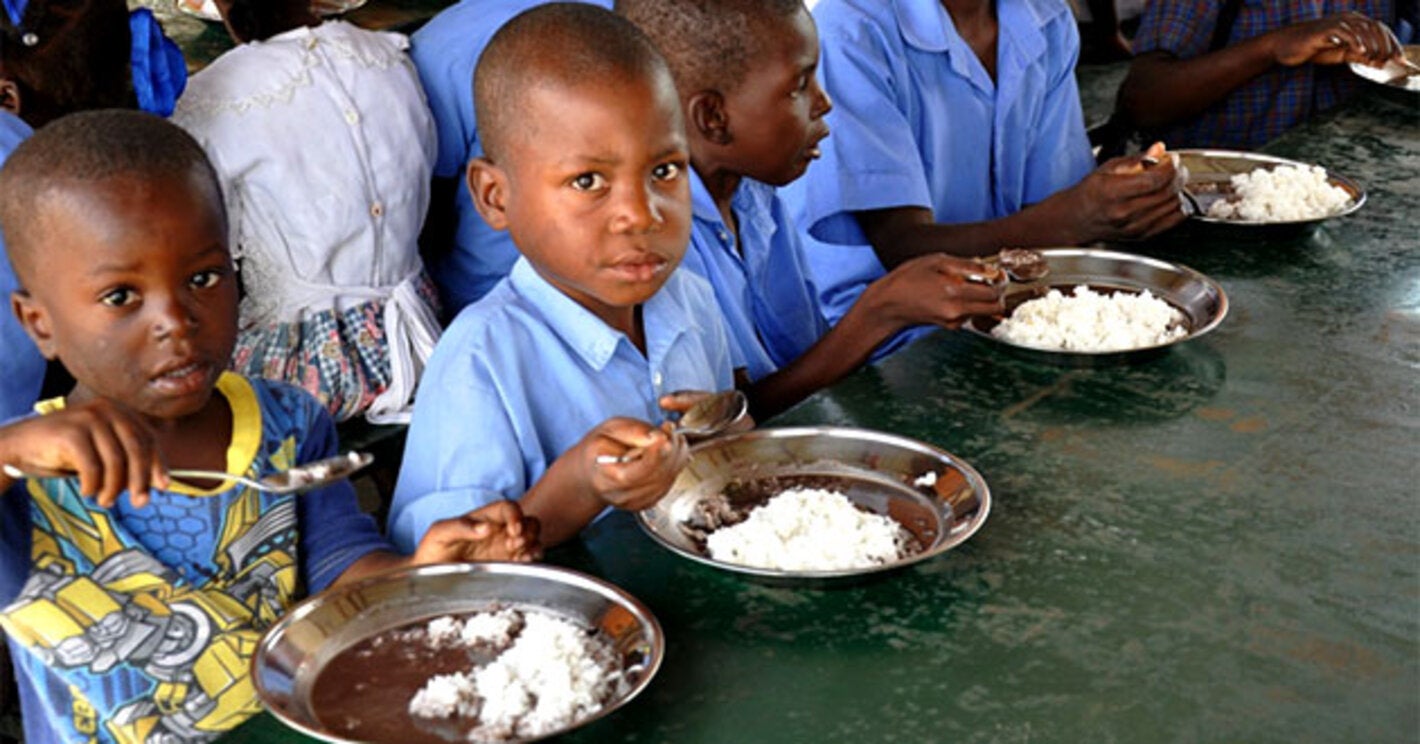
Every day at lunchtime, dozens of children pour into a newly built canteen next to their school in Palmiste Tampe, Haiti. They and their parents can feel safe about the food they are eating since it comes from a kitchen set up by World Central Kitchen, a non-profit organization that provides safely prepared food and education about it to schools in remote areas.
Palmiste Tampe lies about 50 kilometres east of the Haitian capital, Port-au-Prince. Like the majority of people living in rural areas of the country, its residents lack easy access to affordable medical care if they get sick from eating contaminated food. Although foodborne illnesses can be life threatening, preventing these illnesses is both simple and critical.
Safe handling of food is key
Haiti has faced a series of disasters over the past decade, including the earthquake and the unprecedented cholera epidemic of 2010. Safe handling of food plays a vital role in preventing outbreaks of cholera and other food- and waterborne diseases.
In 2010, WHO's Regional Office for the Americas worked with the Haitian Ministry of Public Health to produce cholera prevention messages in the local Creole language. The document offered guidance on safe food handling practices consistent with WHO's 5 Keys to Safer Food:
- keep clean
- separate raw and cooked
- cook thoroughly
- keep food at safe temperatures
- use safe water and raw materials.
"As teachers, cooks and students begin to change these habits, they carry this message home with them, and slowly, the entire community begins to change."
Brian MacNair, Executive Director of World Central Kitchen for Palmiste Tampe
Staff from World Central Kitchen see a great opportunity to educate the 200 children who eat meals in the new canteen. "Through our partnership, we are teaching the importance of personal hygiene, food safety and sanitation, and in that process, we aim to change the habits of entire communities. As teachers, cooks and students begin to change these habits, they carry this message home with them, and slowly, the entire community begins to change," says Brian MacNair, the Executive Director of World Central Kitchen for Palmiste Tampe.
Children as agents of change
The strategy of targeting children for food safety education is not a new one to the region. Previous projects spearheaded by WHO have taken place in school kitchens in countries like Guatemala and Argentina. "The idea is to use the kids as a health agent inside of the home. Kids are capable of changing the behaviours of their mothers, fathers, and siblings, so they are very powerful," says Dr Enrique Perez-Gutierrez, a Senior Adviser in Foodborne and Zoonotic Diseases at the WHO Regional Office for the Americas.
People in Palmiste Tampe are learning that it is especially important to maintain safe food handling practices during crises and times of hardship. "This year, during the on-going drought, clean water is scarce, so we have to make a stronger effort towards proper hygiene, so we don´t get sick," says Madeleine Senat, a cook at the Palmiste Tampe school canteen. With people in her community now learning how to keep the food they eat safe, Senat hopes for a future in which Palmiste Tampe will never again be struck by food- or waterborne disease.



